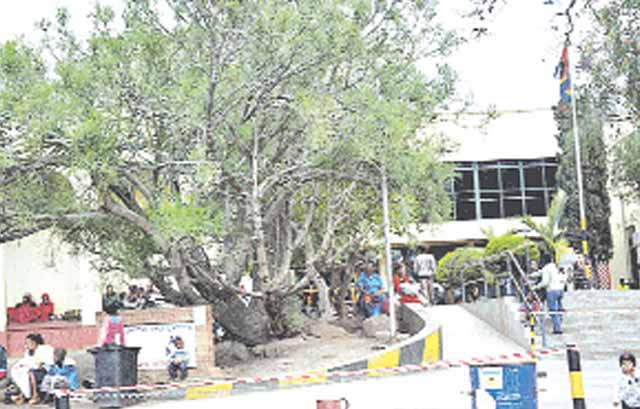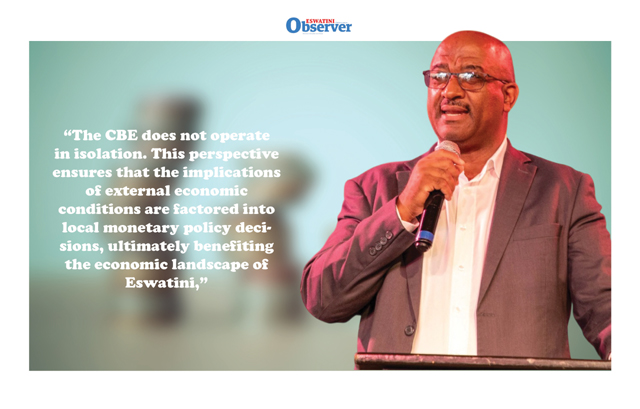By Nkosingiphile Myeni and Kwanele Sibiya | 2023-07-15

Amidst the drug crisis in the country, the Eswatini Nazarene Health Institutions (ENHI), which consist of the Raleigh Fitkin Memorial (RFM) Hospital has owned up to being gripped by tough financial situations.
ENHI acting Chief Executive Officer Dr Raymond Bitchong revealed that the institution which had over 20 community clinics around the country, had failed to collect expected revenues from its streams.
So serious is the situation that Dr Bitchong said ENHI had been making ends meet by defaulting critical payments, including the Pay As You Earn (PAYE), pension fund and stretching of creditor obligations as well as taxes due to the Eswatini Revenue Service (ERS), which has been going on for month-to-month.
The ENHI has been in the news lately.
This is after sources within the institution had shared their concerns over the implementation of the institution’s cost saving strategy.
According to sources, one of the initiatives is the on-call allowances for doctors, radiologistss, physiotherapists, and those working in the laboratory, pharmacy, and theatre which would be suspended.
The institution had proposed to reimburse its staff with off-days instead of overtime.
ENHI had said it would cap on-call to only 108 hours per month.
The sources also said they were of different minds with others of the idea that this proposal be rejected.
The negotiation table however, it was said, failed to come up with an agreement, as ENHI had another option which was also not accepted.
By the time of compiling this report, sources said they had up until yesterday to sign up for this proposal.
Agreement
It was said if the employees fail to sign up the forms of agreement, proposal of working for more than the 108 hours would be modified with a 50 per cent cut of their claims.
The aggrieved staff has reportedly sought the intervention of the Ministry of Labour and Social Security on this issue.
Dr Bitchong, in his statement, said ENHI was a non-profit making public entity that gets its revenue from, amongst other sources government subvention as well as collections from patients’ consultations, among other revenue streams.
“The Eswatini Nazarene Health Institutions (ENHI), a non-profit public entity, has been operating under a major deficit for a long time.
The inflow, consisting of a subvention from government and other income (mainly patient fees) has been perennially lower than total operating costs,” he said.
Dr Bitchong said as the costs continue to escalate, ENHI was forced to implement stringent measures which would if implemented increase revenue.
Personnel emoluments constituted the single highest cost at 73 per cent of total cost and 86 per cent of total income.
“Due to this heavy weighting, the wage bill constituted a major portion of the savings required (5-8 per cent).
To this end, emergency consultations had been held with staff covering those costs that have been prioritised for rationalisation, which include the outsourcing of staff transport, cleaning services, freeze of recruitment, discretionary overtime, rationalisation of on-call allowance, reorganisation of wards to optimise service provision and other measures,” Dr Bitchong.
Costs were higher than income, adding that the institution would cut even costs of electricity, water, telephone bills and non-critical maintenance through rationalisation.
More than that he said it would prioritise the use of solar energy to drive up savings.
share story
Post Your Comments Below

The Eswatini Road Transport Council will have no option but to effect a 100 per cent bus fare hik...

THE MTN Bushfire Festival launch will be underway this evening.
The festival is scheduled f...

Markets plunged, currencies convulsed and analysts scrambled to make sense of things after US Pre...

The Central Bank of Eswatini (CBE) Govenor Dr Phil Mnisi has addressed the prevalent misconceptio...
All material © Swazi Observer. Material may not be published or reproduced in any form without prior written permission.
Design by Real Image Internet